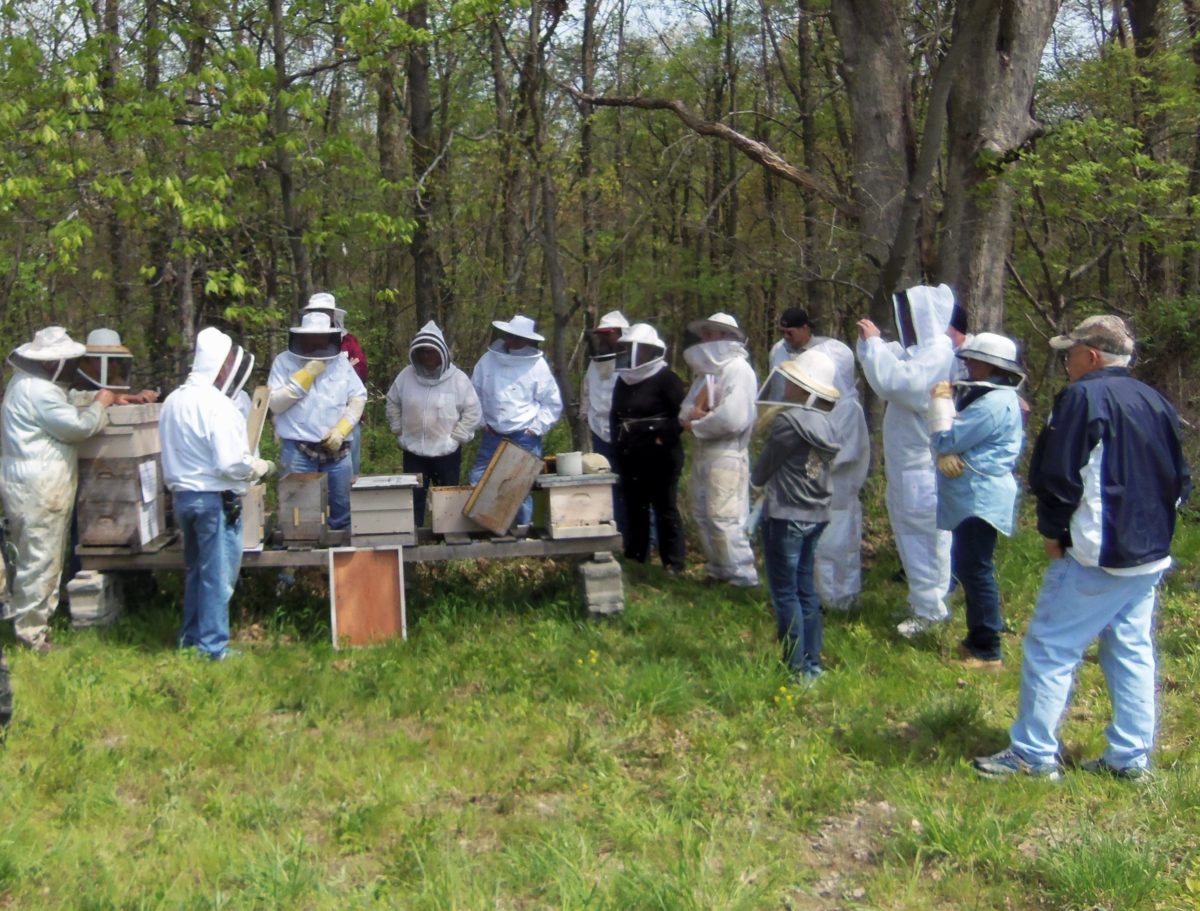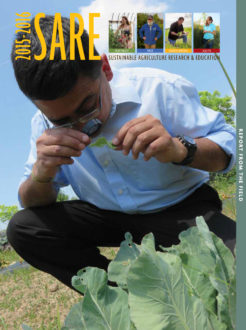SARE: ADVANCING POLLINATOR HEALTH
With honeybees disappearing at alarming rates, it is now considered normal for beekeepers to lose up to 30 percent of their hives each year. Some beekeepers can even lose from 50 to 70 percent in a winter, according to Illinois beekeeper Stu Jacobson. Part of the problem is that most honeybees are reared in California and the South, where they are bred for their ability to produce honey but generally not to withstand diseases and the harsh winters customary in many of the places where they are shipped.
“If the colonies are not healthy, especially if they die, they aren’t going to be able to do that important job of pollinating crops and native plants,” says Jacobson, who raises almost 20 honeybee colonies on his Rochester, Ill., farm. Since 2003, Jacobson has received four SARE grants focused on increasing the understanding and adoption of disease- and mite-resistant queens and bees in Illinois and neighboring states.
To combat high honeybee losses in Illinois, Jacobson and two fellow beekeepers took the problem into their own hands. In 2008, Jacobson used one of his SARE grants to start the Illinois Queen Initiative (IQI), which promotes the production of queens that are adapted to local conditions, and resistant to disease and the varroa mite, an especially destructive pest.
These locally adapted bees are able to overwinter, and emerge healthy and productive in the spring. Because of the serious impact that harsh winters and varroa mites have on honeybees, demand for strong, resilient queens is very high. “If I had 100 queens today I could sell them all. It’s just there is a demand, especially with all of the problems that beekeeping has,” says Illinois beekeeper Craig Schultz.
Pollinators are critical to the food supply—one in every three bites of food we eat relies on insect pollination—so beekeepers in Illinois and beyond are looking for solutions to the problems afflicting honeybees.
Organizations like the IQI are hoping to help. “The conversation about the need for locally adapted, mite- and disease-resistant bees has increased greatly. Now that’s across the country and to a great extent in the North Central region,” says Jacobson. “I think [the IQI has] contributed to it; I can’t document that, but we are part of the conversation.”

The IQI conducts workshops on how to raise queen honeybees, and hosts meetings where beekeepers can share their successes and problems with one another. A core of more than 10 dedicated IQI members have educated hundreds of people like Schultz on how to raise locally adapted, disease- and mite-resistant queen bees. Eight years ago there was just one beekeeper selling queen bees in Illinois. Today there are about 120 people in the IQI. Upwards of 20 raise queens for themselves and to sell, and at least eight advertise their queens.
Though his SARE grants are complete, Jacobson still devotes much of his time to teaching workshops on sustainable beekeeping practices.
For more information, see the project reports for grants ENC03-072, FNC06-641, FNC08-705 and FNC10-822.
Free Resources!
SARE bulletin: Cover Cropping for Pollinators and Beneficial Insects (order free copies or download).
Conduct topical searches of hundreds of educational resources, including pollination.
